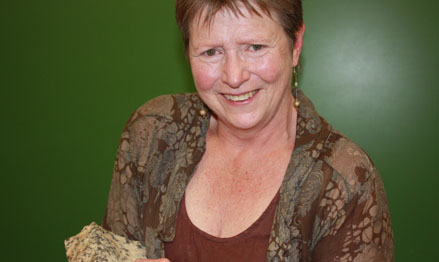Latest News Archive
Please select Category, Year, and then Month to display items
15 November 2022
|
Story Valentino Ndaba
|
Photo Sonia Small

Walk of honour for December graduates
The big day has finally arrived! The December graduation ceremonies will be in full swing on 9 and 12 December. UFS Graduates will do the walk of honour across the stage in the Callie Human Centre on the Bloemfontein Campus.
All the ceremonies will be broadcast on the official
UFS YouTube channel. Join the ultimate launch of the festive season as we celebrate the graduates on:
This marks the second in-person graduations following the COVID-19 pandemic's virtual ceremonies.
Graduates are encouraged to share inspiring stories about their unique academic journey or memories on:
 socialmedia@ufs.ac.za or news@ufs.ac.za
socialmedia@ufs.ac.za or news@ufs.ac.za
On the big day, don’t forget to tag us on Facebook, Twitter, and Instagram, using the official hashtag #UFSGraduation2022
For more information visit the Graduation webpage
The following qualifications will be conferred
| Date | Time | Faculties: All Qualifications |
|---|
| Friday 9 December 2022 | 09:00 | Education
Economic and Management Sciences
Law |
| | 14:30 | Natural and Agricultural Sciences
The Humanities
Theology and Religion |
| Monday 12 December 2022 | 09:00 | Health Sciences |
Prof Tredoux turns theories regarding the formation of metals on its head
2013-09-17
|
 |
|
Prof Marian Tredoux
17 September 2013 |
The latest research conducted by Prof Marian Tredoux of the Department of Geology, in collaboration with her research assistant Bianca Kennedy and their colleagues in Germany, placed established theories regarding how minerals of the platinum-group of elements are formed, under close scrutiny.
The article on this research of which Prof Tredoux is a co-author – ‘Noble metal nanoclusters and nanoparticles precede mineral formation in magmatic sulphide melts’ – was published in Nature Communications on 6 September 2013. It is an online journal for research of the highest quality in the fields of biological, physical and chemical sciences.
This study found that atoms of platinum and arsenic create nanoclusters, long before the mineral sperrylite can crystallise. Thus, the platinum does not occur as a primary sulphur compound. The research was conducted at the Steinmann Institute of the University of Bonn, Germany, as well as here in Bloemfontein.
Monetary support from Inkaba yeAfrica – a German-South African multidisciplinary and intercultural Earth Science collaborative of the National Research Foundation (NRF) – made this research possible. Studies are now also being conducted on other metals in the precious metal group, specifically palladium, rhodium and ruthenium.
The discovery of the nanoclusters and the combination with arsenic can have far-reaching consequences for the platinum mine industry, if it can be utilised to recover a greater amount of platinum ore and therefore less wastage ending up in mine dumps. This will signify optimal mining of a scarce and valuable metal, one of South Africa’s most important export products.
For Prof Tredoux, the research results also prove thoughts she already had some twenty years ago around the forming of platinum minerals. “Researchers laughed in my face, but the evidence had to wait for the development of technology to prove it.” Young researchers were very excited at recent congresses about the findings, since the new models can bring new insights.
“Chemistry researchers have been talking about platinum element clusters in watery environments for quite a while, but it was thought that these would not appear in magmas (molten rock) due to the high temperatures (>1 000 degrees celsius).”
Prof Tredoux has already delivered lectures at congresses in Scotland, Hungary, Sweden and Italy on this research.
Read the article at: http://www.nature.com/ncomms/2013/130906/ncomms3405/full/ncomms3405.html